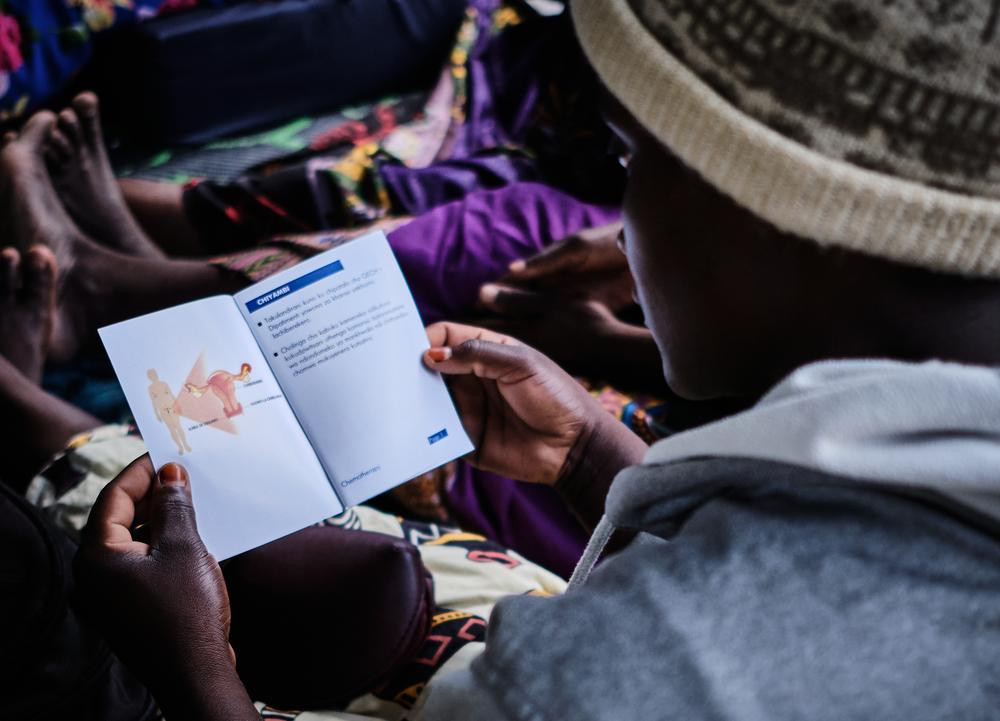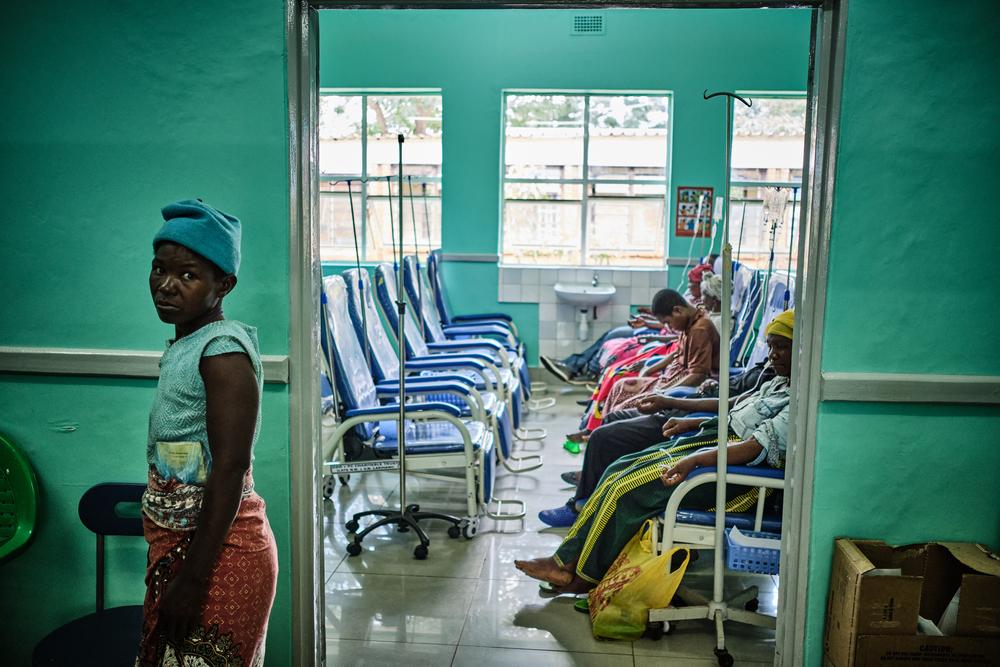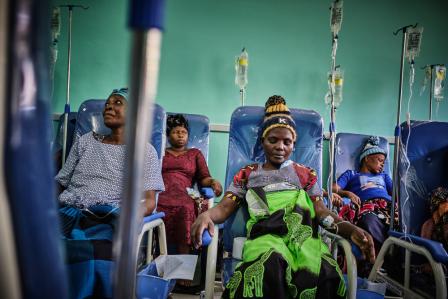Three questions: Managing cervical cancer with limited treatment options in Malawi

A patient leafs through a leaflet prepared by Doctors Without Borders that includes information about the disease and chemotherapy. Malawi, December 2022. © Diego Menjibar
Cervical cancer accounts for 37 per cent of new cancers in women in Malawi. Since 2018, Doctors Without Borders / Médecins Sans Frontières (MSF) has been working to reduce the incidence of cervical cancer and bring down deaths from the disease in the districts of Blantyre and Chiradzulu. Doctors Without Borders head of mission Marion Péchayre answers the three questions.
Why did Doctors Without Borders turn its attention to cancer patients?
“Doctors Without Borders' interest in cancer is the result of a combination of factors. In low-income countries, epidemiological projections suggest a decline in infectious diseases and a simultaneous rise in chronic diseases such as cancer. The lack of resources and the late stages at which cancers are diagnosed in sub-Saharan Africa, for example, suggest that they will eventually claim more victims than infectious diseases, as they do currently in high-income countries. The World Health Organization (WHO) estimates that cancer mortality will double in Africa by 2040.
In Malawi, where we have been providing HIV/AIDS care for many years, we found that a lot of our patients had cervical cancer too. Women with HIV are six times more likely to get cervical cancer than women without HIV. This led us to carry out a comprehensive assessment of the cervical cancer problem in Malawi, which has the second highest prevalence and mortality rates in the world. In 2020, 4,145 new cases of cervical cancer were detected and 2,905 women died. Access to anti-cancer drugs is highly variable, radiotherapy is non-existent, and surgery is poorly developed. We are interested in supporting vaccinations to protect against cervical cancer where possible, as well as extending screening programmes and developing treatment solutions.”
How do you treat cancer in the absence of radiotherapy?
“Radiation therapy is normally the first-line treatment for cervical cancer, but it is not currently available in Malawi. Over the past two years, Doctors Without Borders has developed a model of care that combines chemotherapy and surgery. After three to six cycles of chemotherapy, tumours have shrunk and can be operated on, saving patients’ lives. We don’t yet have the data to assess the two-year survival rate, but the treatment shows satisfactory results and can be expected to provide a life expectancy fairly close to that of treatment with radiotherapy.
In resource-limited countries, this type of treatment could be considered as a serious alternative to radiotherapy, as long as there are well-trained surgeons. This is why we have paid particular attention to training the surgeons who perform advanced surgical procedures such as hysterectomies, where the uterus is partially or totally removed. Each month in our project, surgeons perform an average of 14 hysterectomies, and 40 surgeries in total. As a result, these surgeons have become highly specialised and have acquired a higher level of competence in the field of onco-gynaecological surgery than their counterparts in Europe, where this surgery is rare. In addition, the quality of treatment is ensured by multidisciplinary work, involving anatomopathologists, oncologists, surgeons and supportive care teams, who provide social and psychological support, physiotherapy or palliative care.

This place is called Ward 4B and is managed by the Malawi Ministry of Health. It currently has 50 chairs where cancer patients, no matter what type of cancer, receive chemotherapy. Normally cervical cancer patients who receive the treatment stay in the hospital for 2 or 3 days. Malawi, December 2022. © Diego Menjibar
There is another category of patient whose cervical cancer is detected at a more advanced stage. For these women, we arrange and finance referrals to Kenya so that they can have radiotherapy there. But these referrals require significant support and resources and patients cannot benefit from them on a large scale. But by the end of 2023, we should have access to radiotherapy in Malawi, which will make it much easier to arrange treatment for women with advanced cervical cancer.”
What is the role of vaccinations?
“Vaccinations are crucial because cervical cancer is easily preventable. It is one of the few cancers associated with a virus, the human papillomavirus (HPV), and there is an effective vaccine against some HPVs. The other way to protect against cancer is screening, which is both a means of prevention and the first phase of treatment, as pre-cancerous lesions can be treated at this stage. The HPV vaccine is made available through international mechanisms such as GAVI, but routine vaccination in health centres does not easily reach the target population in Malawi, ie girls aged 9 to 13. They don’t come to health centres as they don’t generally get sick, so they have to be vaccinated either at school or in the villages, for those who don’t go to school. Such systematic prevention programmes in schools and communities require additional resources. We will continue supporting these vaccination programmes, in partnership with the Malawian Ministry of Health, as we did in January, when we vaccinated 17,000 adolescent girls in the Phalombe district.”
